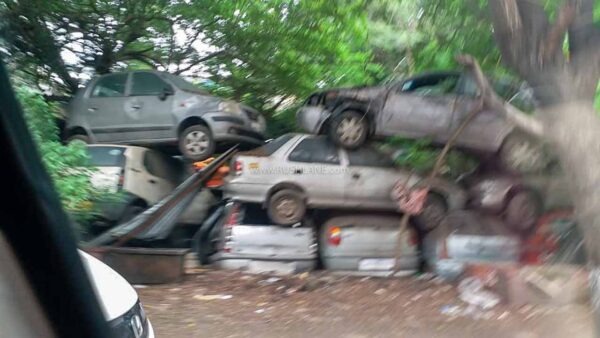
Apart from a hefty amount to obtain a valid fitness test, vehicles falling under this will also have to pay for a Green tax as well as road tax
Union Finance Minister Nirmala Sitharaman presented the Annual Budget which holds great significance primarily because it is the first budget since the outbreak of the Covid-19 pandemic. While there are plenty of talking points of the latest budget, one highlight which certainly got noticed by folks in the automotive industry was the introduction of a Vehicle Scrappage policy.
A first of its kind policy in India, the scheme has been in discussion for a while now and with this, the government aims to phase out inefficient, older and polluting vehicles. In turn, this policy will promote use of more eco-friendly vehicles. Details of the policy are still in works and are expected to be revealed in coming months.
Vehicles falling under this policy
The new policy will be applicable to cars and commercial vehicles which are older than 20 or 15 years, respectively. It is being done in order to reduce pollution from vehicular emissions. The policy is also aimed at boosting sales in the automotive market by motivating consumers to buy new vehicles, which is in desperate need of a push in the post-Covid era.
With full specifics of policy still in the dark what we do know is that this scheme will require all private vehicles older than twenty years to undergo a fitness test. According to Finance Minister, this fitness test will be conducted at automated fitness centres which will evaluate whether or not the vehicle in question is fit to run on roads. If not, the vehicle will then head to a scrap yard. While it is possible for a vehicle to pass the fitness test, each such test would set back an owner by Rs 40,000.

Other charges to be paid
In addition to this, one has to pay an equivalent road tax and a possible “Green Tax” that one has to pay while mandatorily renewing his/her private vehicle’s registration after a 15-year period. Each fitness test has a validity period of five years after which the owner will require to undergo another fitness test costing the same amount of money. The government believes the cost of fitness tests and the cost of keeping a vehicle is up and running will dissuade owners from constantly renewing a fitness certificate.
Development of new scrap heaps
The policy also adds that a particular vehicle would get three attempts to pass a fitness test. If the vehicle fails in all three attempts, the owner does not have many options left other than shipping it to a scrap yard.
A vehicle that has failed the fitness test is deemed unregistered and hence is illegal to drive on roads. The new Vehicle Scrappage policy is also expected to offer monetary incentives to owners sending their vehicles to a scrap heap.
The policy will take effect from April 1, 2022, while more details such as setting-up of scrappage docks/yards, etc. will be furnished in time to come by the Ministry of Road Transport and Highways. As of now, over 51 lakh vehicles both private and commercial fall under the scrutiny of this policy. Their removal will not only help for a surge in demand for new vehicles but also adopt newer technologies like electric vehicles which are most likely to be exempted from this policy.

